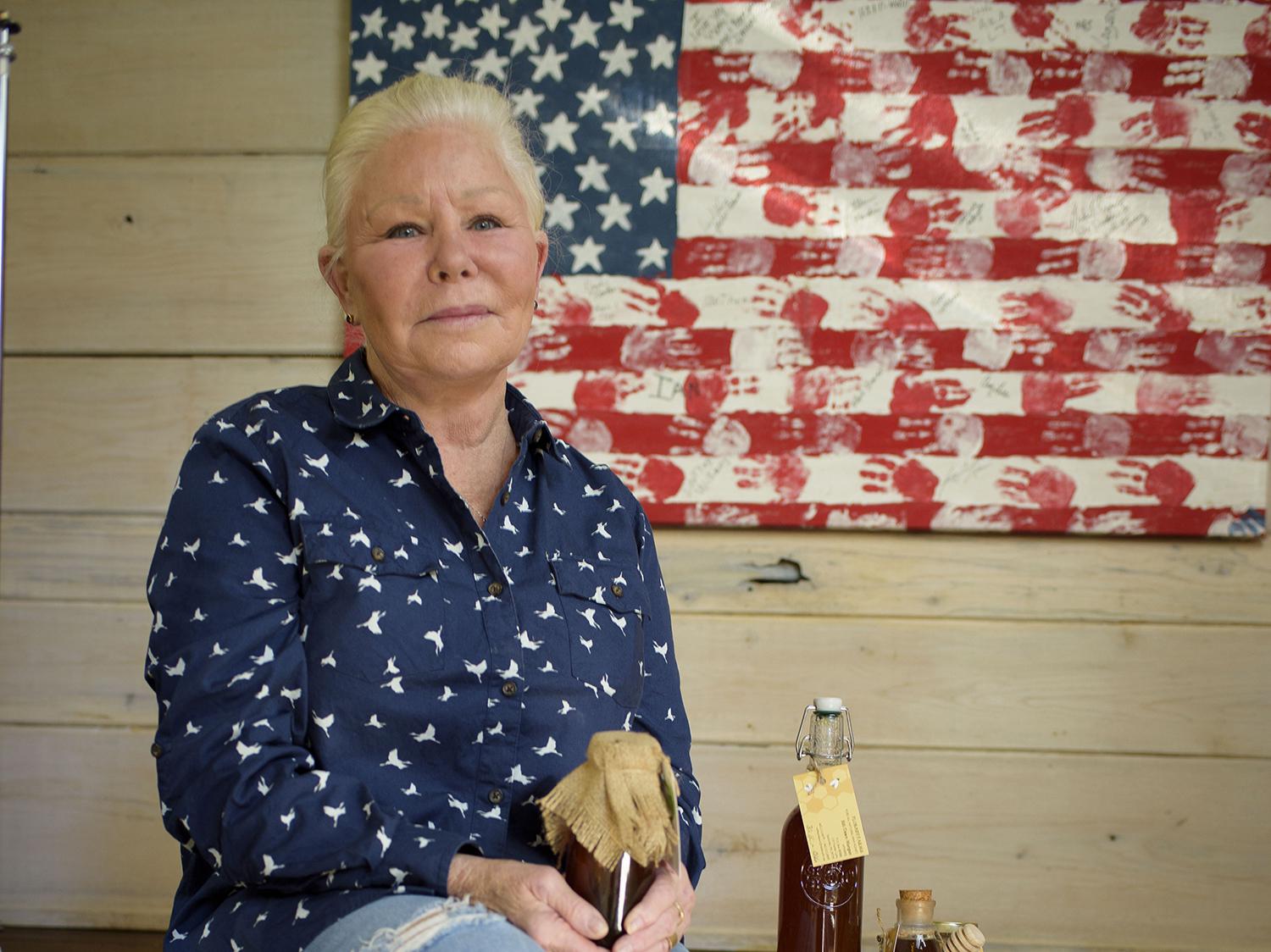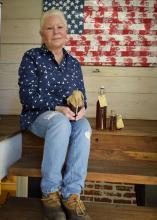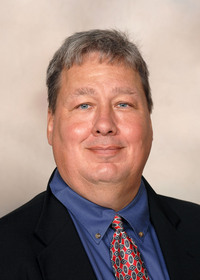Information Possibly Outdated
The information presented on this page was originally released on November 22, 2016. It may not be outdated, but please search our site for more current information. If you plan to quote or reference this information in a publication, please check with the Extension specialist or author before proceeding.
Local beekeeper follows in her father's footsteps
STARKVILLE, Miss. -- Dawn Morgan's father was an organic gardener before organic was cool, but for years she preferred a more manicured yard and the practices that entailed.
Then she began reading about the decline of bee colonies and remembered her dad's orchard and garden buzzing with pollinators.
"Dad kept bees but in a very primitive way," she said. "No bee suit, no smoker, never used herbicides or pesticides. He did everything naturally."
Then one day, her husband, Bill, got a call from the beekeeper he contacted whenever swarms moved into the aircraft engines at Columbus Air Force base where he worked as an airplane mechanic.
“The beekeeper had become allergic to bee stings overnight and asked if Bill would take over his hives,” Morgan said. “Little by little we moved the bees to our house and learned how to take care of them.”
Morgan had noticed a lot of bees on the basil plants in her garden the summer before, and while she did not know of anyone actively keeping bees in her neighborhood, she realized they had to be somewhere in the area.
“I thought that if I was willing to start doing things differently, the bees were going to come, so we quit using pesticides and herbicides, and just let nature take over and do its own thing.”
Soon, Morgan had a bumper crop of honey to harvest, at first using her father’s antique two-frame extractor and then adding in one her husband made from a 50-gallon drum and two old wheelchair wheels. It uses a drill as a motor.
The Morgans attended a Mississippi State University Extension Service beekeeping short course at the Agriculture and Forestry Museum in Jackson taught by now-retired MSU professor Clarence Collison and a retired beekeeping specialist with the Mississippi Department of Agriculture and Commerce, Harry Fulton. Two of the couple’s early colonies were funded through a grant from the U.S. Department of Agriculture. Fulton came out to their place to inspect the hives, make sure they were complying with all of the guidelines, and answer questions.
Their business, FloBaby Hives, ran into trouble in 2013. In six of their 26 hives, the bees had vanished, leaving behind stores of honey and no trace of why they had gone.
Extension specialist Jeff Harris and research associate Audrey Sheridan arrived to investigate. They determined varroa mites were the culprits.
“There weren’t any wax moths or small hive beetles,” Morgan explained. “It took us a while to build back up after such a loss.”
Morgan has recruited some of her friends to join the world of beekeeping.
“If someone is serious about beekeeping and will supply the hardware, I try to help them get started when I get swarms,” she said.
Through one her friends, Terry Fulgham, Morgan’s experience with Extension has come full circle, and she was able to give back to MSU part of the gift she had received so many years ago from the short course.
“I learned that Jeff Harris was looking for a bee yard far from campus to do some research, and I’m too close, so I told Terry, and he volunteered,” she said. “Jeff has about 25 hives out there now, and his work studying varroa mites will help beekeepers across the state.”
Harris said an increasing number of women are getting into the male-dominated hobby of beekeeping.
“I would say there are more women keeping bees now than I can remember in the last 15 years,” he said. “Some keep bees with their spouses, but there are more women doing this on their own.”
In addition to producing honey, honey bees pollinate popular crops, such as almonds, apples, blueberries, cherries, cranberries, melons and various citrus fruits. Bees also help produce seeds for many vegetables, such as asparagus, beans, broccoli and carrots, Harris said.
“People can help pollinators by safely using insecticides and other pesticides,” Harris said. “Always follow the label instructions, and try to use the least toxic products for control of garden pests. Use Neem oil or insecticidal soaps for soft-bodied insect pests, such as mites.”
Harris also recommended including plants that feed either adult or immature stages of pollinators.
“People can also keep hollow stems and decaying logs in gardens to serve as nesting sites for many species of bees,” he said.
For more information on beekeeping and gardening for pollinators, visit http://www.extension.msstate.edu.
News Story Contact
Your Extension Experts
Related News
Pages
Related Publications
Pages
- « first
- ‹ previous
- 1
- 2
- 3




